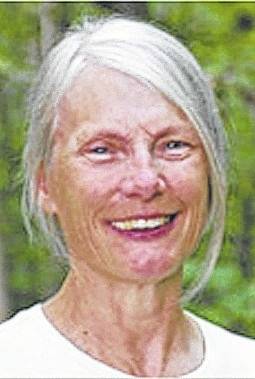
The general public and a lot of volunteers are still unable to visit Stratford Ecological Center on Liberty Road due to fears of spreading COVID-19. Despite sitting on 236 acres, it would be no easy task to prevent folks from congregating in the parking lot and the front lobby as they checked in or purchased items. Instead, Farmer Jeff is concentrating on planting and haymaking, and the hundred and one jobs that “crop up” on a working farm.
The staff and interns have developed virtual experiences to allow us to once again feel a part of Stratford. I am not one who connects readily to social media, but access to the fun and educational videos is easy through the Stratford website, and then via YouTube, with no requirements to join.
Two of the regular features are a Homestead Series for Kids, running for a short time each day from June 22-26 and July 6-10 at 10 a.m. The other is a Beginner Farmer Growing Collaborative led by staff member Olivia Pflaumer, which began on May 21 and continues live streaming every Thursday at 4 p.m. through Aug. 6. You can still access previous livestreams for both features.
Additional agriculture/horticulture short videos show up on the site, including some from Stratford. Members of the Herbal Study Group share the numerous attributes of elderberry trees, as they plant them in the Gazebo Garden in memory of Martha Phillips, who shared so much with the group.
April Hoy, education director, provides good tidbits for those returning to growing in their newly created Victory Gardens, as she plants bell, hot and sweet peppers, lima and bush beans, and a few tomatoes in a mulch of corn stalks in field 2. Even more hands-on information, and a lovely tour of Stratford’s Children’s Garden and big Greenhouse, can be gleaned from a video of April within the Beginner Farmer “Introduction to Greenhouse and Garden Management” that aired on June 11.
The six raised strawberry beds in the Children’s Garden are as lush as ever. I remember April and a crew spending companionable hours diligently digging out horseradish roots from a couple of them prior to replacing with strawberry plants. One volunteer took home some roots thinking it could not be too difficult to make when the recipe called for only three ingredients, namely roots, vinegar and salt. However, she found the light brown skin covering the three-pronged roots was by no means as easy to remove as scraping a carrot, and her tears were way worse than peeling any onion! It took her forever to get to the point to be able to grate them in a processor. Her efforts produced two “small” jars, and it was delicious, but she will not be repeating the process. Her advice is that buying is a bargain!
Many more tomato plants, over 200 to be precise, were started in our small greenhouse and transplanted along the west edge of field 2, by agriculture interns Andres and Carmen. The past two abnormal growing seasons for tomatoes in various parts of field 3 have resulted in early and late blight and no fruit, so a change in location as far away as possible was the answer.
A farmhand generously donated 180 wooden stakes to supplement the metal cages used to support the tomatoes. Wooden stakes have a much greater shelf life than cages and were gratefully received. Old hay was used as mulch, and it was a welcome pick-me-up to witness and giggle at the amount of mulch that landed on the head of the opposite intern as they tossed it around.
A late planting of corn is now in the south side of field 2, the east of 4, and west of 7. We received a donation of corn seed enabling us to plant more this year and rebuild our inventory.
After losing a first cut of hay in field 2 due to rain, on June 9 we were able to take off 260 bales from field 1, the east side of the North Pasture, and an acre adjacent to 4 around the bonfire. Another haying took place last Wednesday when the spelt in parts of field 2 & 3 and the rye in 9 was cut and baled. This was a much better result than 2019, when too much rain and then dry weather prevented any hay production until September.
Four of our 11 piglets were sent to Aullwood Audubon Center and Farm, the environmental education farm near Dayton. Aullwood served as advisors to Stratford when we first established in 1990. Ruby, one of our oldest Toggenburg goats, gave birth on June 8 to a daughter strong enough to be put on pasture immediately. There is plenty of grazing for the livestock, and the warm days, without too much humidity or rain, has been a treat for them.
We hope you too are enjoying these pleasant summer days, and if you are growing more flowers and vegetables that you are having success, even if deer and raccoons are nightly visitors and take their toll!


